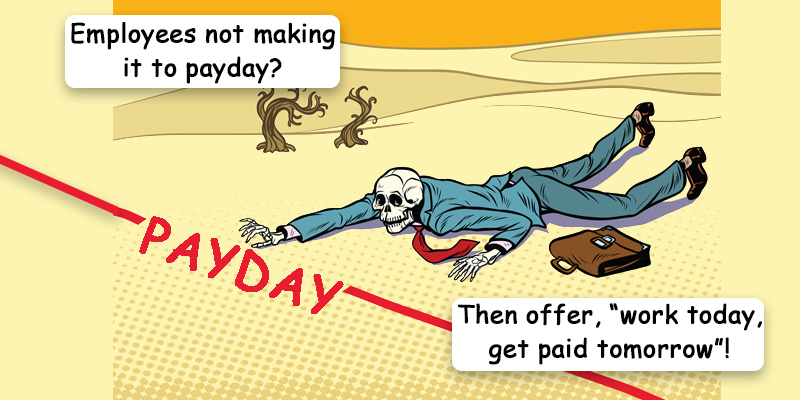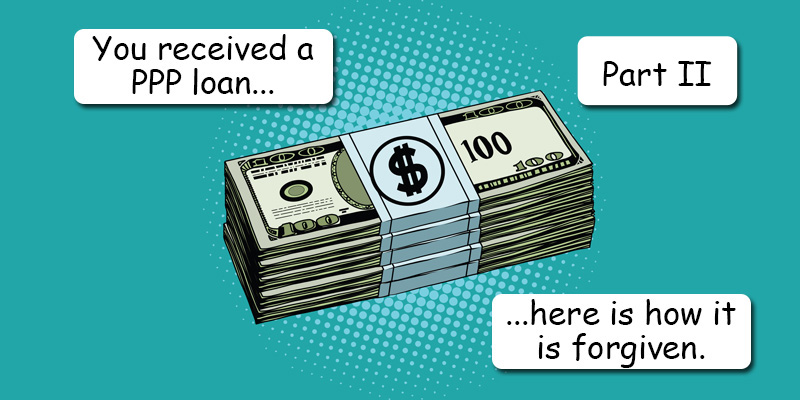Overtime. It is a subject that you may think you know well, but do you? It is not always a simple matter of paying the employee “time and a half” for any hours worked in excess of 40 hours in a workweek. There is much more to take into consideration, and while this article is not intended to cover every scenario out there, we will touch a number of bases. What we will not cover, this time around, is who may be exempt from overtime. Let’s start with the federal law, where the overtime provisions are contained in the Fair…
Posts published in “Pay Period”
Whether you call it ‘earned wage access’, ‘instant pay’, ‘on-demand pay’, ‘pay on-demand’ or ‘wages on-demand’, this employee benefit is one of the fastest growing employee wellness programs in the market. Nearly 3 out of every 4 U.S. employees (72%) want access to their wages before their pay day, according to The UKG Workforce Institute study. With the increasing demand, there’s been a massive explosion in the number of companies offering earned wages on-demand to employees. You will find many employment ads that state “work today, get paid tomorrow” in their job offering. It is becoming a competitive advantage for…
The Small Business Administration (SBA) has released the Loan Forgiveness Application, which has provided answers to many previously-vague conditions of forgiveness. One problem is that for many, these instructions come towards the end of their eight-week loan proceeds spending and may be too late. I saw one article state that the loan application failed to provide instructions as to how to build a time machine to go back in time to correct what might have already been done. We may see a spike in Delorean resales! Rather than repeat what I have provided in the first article https://blog.paymaster.com/sba-paycheck-protection-program-ppp-loan-forgiveness/ , I…
With the exception of four states (Alabama, Florida, Georgia, and Mississippi), each state has specific laws regarding the issuance of a final paycheck to a separated employee. Many states differentiate whether the employee was separated voluntarily or involuntarily, and the timing ranges from “immediately” (yes, this means the same day the employee is terminated) to the next scheduled payday, so I have put together this table for quick and easy reference. Each state has penalties for violation of the final check rule, so be sure you know what is required. A state such as California will enforce the employer to…
To pay Weekly or Biweekly (or some other frequency), that is the question. The US Department of Labor (DOL) does not specify any sort of frequency in which employees should be paid minimum wages or the overtime compensation it calls for. Instead the language states that “Wages required by the Fair Labor Standards Act (FLSA) are due on the regular payday for the pay period covered.” While this seems vague, the DOL takes this principal seriously. For example, if an employee fails to record time worked or submit a timesheet, and the employer is aware that work was performed, the…
Going paperless. Some do it to save the environment, some do it to save money, and some do it to save time. No matter what the reason, there are some things to consider when it comes to the payroll process and the payroll check. While the “check” itself becomes obsolete as many individuals go on direct deposit, it is always attached to a check stub, or as we call it, a pay statement, a detail of the employee’s wages, deductions withheld, taxes withheld, and sometimes other important information. According to the United States Department of Labor, the Fair Labor Standards Act…
There is a phenomenon that can occur about once every 5 to 11 years, depending upon whether you pay your employees weekly or biweekly. It is that instance of an extra pay day within the calendar year. For many companies, we find that it passes without a second thought, but should it? First off, why does it happen? The root of the problem is that 365 days in the year is not divisible by a 7 day work week. There is a remainder, and over time, that remainder will add up to a whole number, thus another pay period. 365…





